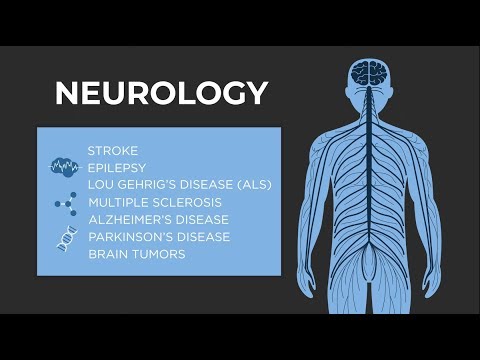If you’ve ever wondered, what is a neurologist, you’re not alone. Neurologists are the behind-the-scenes heroes of our health, specializing in the complex world of the nervous system. This includes everything from the brain and spinal cord to those tricky peripheral nerves. Whether you’re battling migraines or facing the challenges of Alzheimer’s, neurologists have the expertise crucial for understanding and treating these conditions. They’re not just doctors; they’re your partners in navigating health challenges that directly impact your quality of life.
The nerves are like the highways of our body, and when there’s a jam or a breakdown, it can lead to serious problems. It’s important to have the right vehicle—the neurologist—in the driver’s seat, guiding you through the tangled mess of nerves. They utilize advanced techniques to diagnose issues, interpret brain scans, and offer feasible treatment options. Trust me, knowing when to consult a neurologist could mean the difference between managing a chronic issue and suffering without a clear path to recovery.

Top 5 Reasons to Consult a Neurologist

1. Management of Chronic Migraines
Chronic migraines can be debilitating, shattering your daily routine and draining your motivation to get shredded at the gym. So, if you think those headaches are just part of life, think again! Neurologists dive deep into your medical history and often pinpoint triggers that you might’ve overlooked. They might prescribe medications like Aimovig or Emgality, which can be game-changers for reducing the severity and frequency of migraines, giving you back control of your life and workouts.
2. Stroke Prevention and Recovery
Did you know that strokes aren’t just a medical emergency but also used to be a common misconception? Neurologists are your go-to experts for preventing and recovering from strokes. They assess risk factors like hypertension and atrial fibrillation, providing education and strategies to help you stay healthy. If you ever feel the sudden onset of symptoms, remember the F.A.S.T. mnemonic—Facial drooping, Arm weakness, Speech difficulties, and Time to call for help. This could save your life or someone else’s after a stroke.
3. Epilepsy Diagnosis and Treatment
If you or a loved one has been diagnosed with epilepsy, you know it can feel overwhelming. Here’s where neurologists shine! They utilize tools like EEG monitoring to understand your unique seizure types better, tailoring treatments that fit your lifestyle. Medications like Keppra or Lamictal can significantly improve your quality of life, minimizing those unpredictable surprises that can disrupt your plans.
4. Alzheimer’s and Dementia Care
The battle against Alzheimer’s and dementia is one that many face in today’s society, and neurologists are at the forefront of that struggle. They assess memory loss and cognitive decline thoroughly, providing not just medications like Donepezil but also recommending lifestyle changes and cognitive therapies. Remember, having a reliable support system is essential for families trying to decode these complex emotions and challenges associated with neurological conditions.
5. Multiple Sclerosis Management
Dealing with multiple sclerosis (MS) isn’t just a physical challenge; it’s often an emotional one, too. Neurologists are pivotal in creating effective management plans uniquely designed for MS patients. They may employ disease-modifying therapies like Ocrelizumab and Fingolimod and guide you through lifestyle adaptations that can make your daily life smoother and more manageable.

What Is the Connection Between Neurology and Other Health Concepts?
So, how does neurology intersect with various health concepts? Let me break it down for you!
What is Oil Pulling?
You might’ve heard of oil pulling as a trendy oral health practice. But did you know it can affect overall brain health? Though studies are limited, oral health plays a key role in our overall well-being, potentially impacting the risk of cardiovascular and neurological diseases. So, keeping your mouth fresh might just do more than keep your breath minty!
What is Implantation Bleeding?
Now, let’s shine a light on a different topic: implantation bleeding. This is generally discussed in the context of obstetrics, but hormonal shifts during pregnancy could have neurological implications. Neurologists even monitor pregnancy-related issues, like gestational migraines, ensuring your journey is as smooth as possible.
What is a Virgin?
When diving into discussions about sexual health, being knowledgeable about concepts like what is a virgin isn’t just for the curious. Neurologists study how trauma or dysfunction can lead to neurological symptoms. Understanding these connections is essential in offering comprehensive care that addresses both mental and physical health.
What is an Empath?
The concept of an empath resonates with many, especially in today’s fast-paced world. Neurologists examine how emotional intelligence and empathy intertwine with brain function, shedding light on psychological conditions like autism spectrum disorder. These insights can lead us closer to understanding our emotional capabilities and limitations.
What is a Heart Murmur?
A heart murmur generally ties back to cardiac health, but it can also signal neurological issues. Certain murmurs could indicate an increased risk of stroke due to irregular blood flow. That’s why neurologists often collaborate with cardiologists to manage these intricate cases.
Is It Possible to Experience Psychosomatic Symptoms?
Life can throw curveballs, and sometimes, psychosomatic symptoms emerge—pain or discomfort that manifests due to emotional distress. Neurologists explore this fascinating connection between mind and body, emphasizing the importance of a holistic approach to health. Understanding this interaction can be a catalyst for effective treatment, improving your overall health and fitness journey.
What Is Love Bombing and What Is Lust?
Finally, let’s get personal for a moment. Love bombing and lust aren’t just buzzwords; they have neurological implications, too! Neurologists study how our brain chemistry changes based on emotional experiences, impacting conditions like anxiety or depression. These emotional responses are vital to understanding interpersonal relationships and their effects on mental health.

Bridging the Gap Between Neurology and Everyday Life
Neurologists stand at the crossroads of health and wellness. They go beyond clinical duties, integrating their knowledge into the broader aspects of life. Understanding how neurological function interconnects with various dimensions—from emotional experiences to physical health—reveals why neurologists are indispensable for maintaining overall wellness.
When you recognize certain symptoms or conditions and seek the expertise of a neurologist, you’re taking crucial steps toward overall better health. Your brain, that magnificent powerhouse, deserves the best care. Don’t hesitate to arm yourself with knowledge and the right medical support to maximize your life potential. Embrace the journey to optimal health today, because a well-managed nervous system leads to a stronger, healthier, and more fulfilling life!
So, what is a neurologist again? The ultimate health coach for your brain and nerve health, helping you crush it in life every step of the way!

What is a Neurologist?
When diving into the world of health, let’s explore the fascinating role of a neurologist. These specialized doctors focus on the brain, spine, and nervous system. They diagnose and treat conditions ranging from migraines to epilepsy to multiple sclerosis. Imagine them as detectives, piecing together clues to unlock the mysteries of our neural pathways. Speaking of mysteries, did you know that some elements in tonic water, like quinine, are not only fun in drinks but also have historical ties to treating malaria? That’s right! What Is tonic water, really, if not a quirky twist in our health journey?
The Role of Neurologists
So, what does a neurologist really do, you ask? Well, their toolkit includes various exams and tests, like MRI scans and EEGs, to get a clearer picture of brain health. Their work is crucial in identifying underlying conditions. By the way, a well-known actor, Theresa Randle, has starred in several films that highlight character transformations, much like how neurologists can change a patient’s life through their expertise. From evaluating neurodegenerative diseases to managing chronic pain, they carry significant weight in the healthcare system.
Why You Should Consider Seeing One
It’s pretty wild how essential neurologists are for our health and well-being. Their insight often leads to early detection of serious conditions. Fun fact: even the song “As It Was” by Harry Styles delves into themes of change and self-discovery that echo the transformations many experience through neurological care. Patients often find that, after visiting a neurologist, their lives can take on new hope and direction. Just like how purple power, a vibrant food trend, symbolizes health and vitality, a good neurologist can empower patients to take charge of their neurological health, steering them toward a brighter future.
Recognizing the signs and knowing when to seek help can make a huge difference in your life. Understanding what is a neurologist isn’t just for knowledge’s sake; it can genuinely help you navigate your health journey. Their role is vital, bridging gaps where wisdom and treatment meet, guiding you as you face life’s many challenges. So, don’t hesitate—consider visiting one today!



























